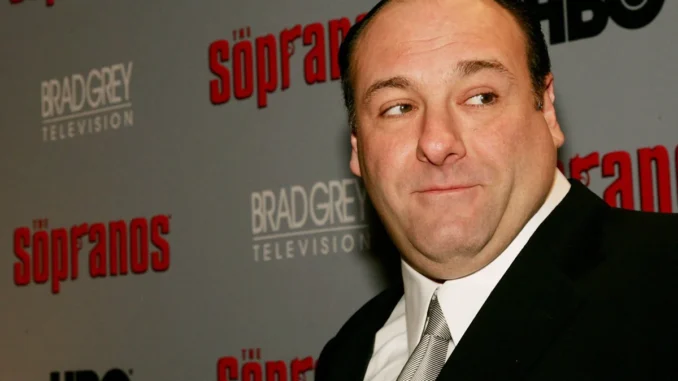
James Gandolfini, the powerhouse actor who brought Tony Soprano to life, faced immense personal struggles during the height of The Sopranos. Despite being a beloved figure in television history, Gandolfini battled substance abuse that nearly cost him his role in the groundbreaking series. In this article, we’ll dive into the details of his struggles, the emotional interventions, and the legacy he left behind.
A Troubled Genius: The Man Behind Tony Soprano
Gandolfini’s portrayal of Tony Soprano wasn’t just a role; it was a cultural phenomenon. His ability to capture the complexity of a mob boss grappling with his identity, family life, and mental health made him a standout performer. However, the man behind the character was grappling with his own demons.
The Intervention That Almost Ended It All
In a revealing new documentary, Wise Guy: David Chase and The Sopranos, HBO CEO Chris Albrecht recalls a pivotal moment in Gandolfini’s life—an intervention meant to help him confront his substance abuse issues.
Albrecht recounts how he invited Gandolfini to his apartment under the pretense of a casual meeting. However, when Gandolfini walked in and saw the gathered group, he immediately sensed what was happening. “Aw, fuck this,” he said, and walked out, leaving everyone scrambling to convince him to stay. Albrecht remembers Gandolfini’s chilling words: “Fire me,” highlighting just how far he was willing to go to escape the pressure.
The Weight of Expectations
Gandolfini’s struggle didn’t just stem from his personal issues; it was also amplified by the weight of expectation that came with starring in such an iconic show. Fellow actor Steven Van Zandt, who played Silvio Dante, revealed that Gandolfini often talked about quitting. “He probably quit the show every other day. Maybe every day,” Van Zandt admitted, illustrating the immense pressure Gandolfini felt.
Coping Mechanisms and Disappearances
When the stress of leading a hit show became too much, Gandolfini would sometimes just disappear for a bit. His need to escape was a coping mechanism that was difficult to navigate, not just for him but for his fellow cast members and the production team. This volatility is a stark reminder of how the pressures of fame can take a toll on mental health.
A Legacy of Kindness: Behind the Scenes with Gandolfini
While Gandolfini’s struggles were well-documented, his kindness and generosity often went unnoticed. He was not just a star; he was a deeply caring individual who made a significant impact on those around him.
Supporting Jamie-Lynn Sigler
One touching story comes from Jamie-Lynn Sigler, who played Gandolfini’s daughter, Meadow Soprano. After she was diagnosed with multiple sclerosis in 2002, Gandolfini quietly stepped up. Sigler revealed on the Life Is Short podcast that he had been making donations to MS charities in her name without telling her. “I found out after his death that he donated to MS organizations constantly for me,” she said, showcasing his generous spirit.
Sigler shared a poignant moment when she confided in Gandolfini about her diagnosis. “He pulled me aside one day and said, ‘Jamie, what is going on?’ I just fell in a puddle in his arms,” she recounted. His compassion during that vulnerable moment highlighted the kind of person he was beneath the tough exterior.
A Complex Legacy
Gandolfini’s legacy is a complex one. He was a brilliant actor who gave life to one of television’s most iconic characters while also battling personal demons that many can relate to. His story serves as a reminder that behind the glitz and glamour of Hollywood, real struggles exist.
The Impact of The Sopranos on Television
The Sopranos didn’t just change the landscape of television; it set a new standard for storytelling, character development, and emotional depth. Gandolfini’s performance was central to this shift, and his struggles only added layers to the complexity of his character.
Redefining Antiheroes
Tony Soprano is often credited with redefining the concept of the antihero on television. Gandolfini’s portrayal blurred the lines between good and evil, forcing audiences to grapple with their perceptions of morality. This complexity paved the way for future antiheroes like Walter White in Breaking Bad and Don Draper in Mad Men.
The Cultural Resonance of The Sopranos
Even years after the show ended, its impact is still felt. The Sopranos sparked discussions about mental health, family dynamics, and the pressures of modern life. Gandolfini’s struggles resonated with many viewers, leading to greater awareness about the importance of mental health and the challenges of addiction.
Conclusion: Remembering James Gandolfini
James Gandolfini was more than just Tony Soprano; he was a man who battled personal demons while creating an unforgettable legacy in television history. His struggles remind us of the complexities behind fame and success, while his acts of kindness reflect a caring soul beneath the surface.
As we continue to celebrate the 25th anniversary of The Sopranos, it’s essential to remember not just the character Gandolfini portrayed but the man he was—flawed, generous, and ultimately unforgettable.
